Saline Township, MI, In a quiet patch of Washtenaw County farmland just outside Ann Arbor, something big is on the horizon. Not another corn harvest, but a massive high-tech data center that promises to put Michigan at the forefront of the AI revolution. OpenAI, the organization behind ChatGPT, is partnering with software giant Oracle and developer Related Companies’ digital arm to transform 250 acres of rural Saline Township into a 1-gigawatt “hyperscale” computing campus nicknamed “The Barn”. Locals who have driven along Michigan Avenue past the iconic red barn on the property may soon see it standing at the gateway to one of the country’s most advanced artificial intelligence facilities instead of endless rows of crops. The project’s sheer scale and the unlikely setting have families and longtime Michiganders buzzing with a mix of excitement and curiosity.
When Is the Best Time to Sell in Ann Arbor?
.png)
What Exactly Is Being Built?
The proposed development is part of OpenAI and Oracle’s “Stargate” initiative to expand AI infrastructure, and it marks Michigan’s first-ever hyperscale data center campus. Here’s a quick overview of the key details and why this project is turning heads:
- A 250-Acre Tech Campus: The data center will occupy a 250-acre site in Saline Township, on what used to be open farmland. The design calls for three 550,000-square-foot, single-story buildings filled with servers and high-end computing equipment. For context, that’s over 1.6 million square feet of facilities, akin to about 28 football fields of indoor tech space under one “roof.”
- Enormous Power Demand: With over 1 gigawatt of computing capacity, the complex will draw an estimated 1.4 gigawatts of electricity at full tilt. Utility DTE Energy notes this is about 25% of its entire current power generation capacity, roughly equivalent to the output of a mid-sized nuclear reactor – instantly making this project one of the biggest power users in Michigan history. Running all those AI systems takes a lot of juice, but DTE has inked a deal to supply the load over the next few years without needing new power plants (more on how that works below).
- Multi-Billion Dollar Investment: While the developers have been mum on the exact price tag, estimates exceed $7 billion for the campus construction and infrastructure. Governor Gretchen Whitmer called it “the largest one-time economic project in Michigan’s history,” underscoring just how significant this is for the state. In fact, this single AI-focused site rivals the scale of recent automotive factory investments, signaling a major shift toward high-tech industry in Michigan.
- Job Creation and High-Tech Talent: The data center is projected to create 2,500 union construction jobs during the building phase, and over 450 permanent high-skill jobs on-site once operational. An estimated 1,500 additional spin-off jobs in the community are expected as suppliers and support businesses grow to service the facility. For a relatively small township of under 3,000 residents, this influx of employment, ranging from IT technicians to security and maintenance staff, could be transformative. State leaders are also touting the pipeline of local talent from nearby University of Michigan (Ann Arbor) and Eastern Michigan University (Ypsilanti) that can fill these high-paying tech roles without leaving home.
- “Stargate: Michigan”, Part of a Bigger AI Network: OpenAI and Oracle have dubbed this project Stargate Michigan, one node in a broader strategy to expand AI infrastructure nationwide. In fact, just this week they announced another Stargate data center in Milwaukee, WI, valued at $15 billion. The Saline Township site will contribute over 1 GW to a planned 4.5 GW network of AI data centers across the country. For Michigan, landing a piece of this “AI cloud” signals that the state aims to be a serious player in the next generation of tech and innovation, right alongside the likes of Silicon Valley and Seattle.
These highlights sketch out a picture of a gargantuan facility rising from former cornfields, an almost surreal development for long-time locals. But why, one might ask, was this sleepy township near Ann Arbor chosen for such a groundbreaking project? To understand that, we need to look at what Michigan offered and how community leaders responded.
Why Saline Township, and Why Now?
Choosing Saline Township for a hyperscale data center was not a random dart throw on the map, it was a strategic decision shaped by location, talent, and some home-grown Michigan business connections. The site sits on the north side of US-12 (Michigan Avenue) between the small city of Saline and Clinton, an area known for flat, open land and easy highway access. Project representatives explained they wanted a suitably flat property with convenient road access, and this stretch of rural Washtenaw County fit the bill perfectly. The landscape will certainly change, but the developers have playfully embraced the setting, even dubbing the project “The Barn” in homage to the historic red barn at the site’s entrance, which they plan to preserve as a nod to local heritage.
Beyond the geography, Michigan offered a strong workforce and incentives that sealed the deal. In a competitive bid for the project, state officials pointed to Michigan’s robust construction trades and tech talent pool as a major asset. After all, Metro Detroit and Ann Arbor are home to countless engineers, skilled tradespeople, and IT graduates thanks to the auto industry legacy and top universities. This means local labor can build and operate the data center, keeping the benefits (and paychecks) close to home. Governor Whitmer’s office specifically noted the proximity to U-M and EMU campuses, suggesting the facility could provide a career path for graduates in software engineering, data science, and IT without them having to move to the coasts. For a lifelong Michigander, it’s encouraging to see high-tech opportunities sprouting right here, potentially stemming the “brain drain” of young talent leaving the state.
Crucially, Michigan’s policy environment helped attract OpenAI and Oracle’s investment. Late last year, state lawmakers passed new tax breaks and incentives for large data centers, aiming to entice big tech projects exactly like this. The Saline Township development will benefit from a sales and use tax exemption on data center equipment through 2028, thanks to that legislation. Furthermore, a recent Michigan law explicitly ensures that data centers can’t get electricity rates that cause residential customers to subsidize their costs. This was a response to concerns that ordinary ratepayers might unknowingly foot part of the bill for these energy-hungry facilities, a point Michigan leaders were keen to address up front. All told, the message to tech companies was clear: “You can build it in Michigan”, as Gov. Whitmer put it, and the state will make it worth your while.
It certainly doesn’t hurt that billionaire Stephen Ross, a Detroit native, University of Michigan mega-donor, and owner of the Miami Dolphins, is indirectly involved via Related Companies. Ross’s firm launched Related Digital, the data center development company partnering on this project. While Ross himself isn’t running day-to-day operations at Related Digital, his influence looms large. He has been pouring investment into Michigan developments in recent years (from Detroit’s Hudson’s site and the “District Detroit” project to new U-M facilities). Having a hometown heavyweight on board likely gave Michigan an edge; it’s a sign of confidence when one of our own is willing to bet big on the state’s future. As Jeff T. Blau, CEO of Related Companies, remarked, “This historic, multi-billion-dollar investment will ensure Michigan plays a leading role in developing the digital infrastructure American companies need”. In other words, the stars aligned, with the right land, local talent, political will, and a touch of Michigan pride, to bring this futuristic project to a once-sleepy field near Ann Arbor.
 crainsdetroit, instagram
crainsdetroit, instagram
Powering a 1.4GW Facility: Can the Grid Handle It?
One of the first questions savvy locals ask about this project is, “Can our power grid support something this huge without knocking out everyone’s lights?” It’s a fair concern, a data center of this scale will consume extraordinary amounts of electricity and water to keep thousands of servers humming and cool. The companies involved and DTE Energy have been working hard to reassure the public that yes, the infrastructure can handle it, and no, your utility bills won’t skyrocket as a result.
DTE Energy, the region’s electric utility, has committed to supplying 100% of the power needed for the data center, an unprecedented 1.4-gigawatt load. According to DTE representatives, this single project’s demand would equal roughly a quarter of all the power DTE currently generates for its customers. Fortunately, DTE says it has excess capacity available right now, and as the data center’s energy needs ramp up over the next 2–3 years, the utility will bring online a new $2 billion battery storage system to help meet the demand. Importantly, DTE emphasizes that this big battery and any grid upgrades will be financed entirely by the project itself, not by ratepayers. “Most importantly, data center development in DTE’s territory will not increase customer rates,” DTE’s president Joi Harris stated, noting contract terms ensure the center absorbs all new costs required to serve it. In fact, DTE argues that existing customers could see a benefit: by selling so much excess power to a new large user, the utility can spread its fixed costs over a larger base, potentially easing pressure on rates for everyone. While some are understandably skeptical, Michigan law and regulatory oversight will aim to guarantee that residents aren’t subsidizing the energy bill for this private facility.
On the water and environmental front, the Saline data center plans to use a closed-loop cooling system to keep those server farms from overheating. In simple terms, a closed-loop system continually recirculates water for cooling instead of constantly drawing freshwater. The developers claim this design will limit daily water consumption to levels “comparable to an office building,” with no additional water drawn from the Great Lakes or local aquifers for cooling needs. That’s a critical point in Michigan, where any hint of siphoning Great Lakes water can raise red flags. By recycling water internally, the facility won’t act like a giant straw in the local watershed, which helped alleviate some initial worries about draining wells or impacting farms. Governor Whitmer’s office even noted that the project won’t require any new power generation or new water sources to operate, a selling point that this data center is leaner and greener than the notorious server farms of old.
Still, powering advanced AI hardware is an energy-intensive affair, and environmental groups have urged caution. The Sierra Club’s Michigan chapter, for example, welcomed the companies’ promises but also stressed the need for “proper guardrails” to ensure this data center doesn’t become a burden on “our neighborhoods, our economy, energy bills, water, and climate”. They point out that without careful planning, a wave of data centers could strain the grid or prompt utilities to build new fossil-fuel power plants down the line, complicating Michigan’s push toward clean energy. In fact, both DTE and Consumers Energy (the state’s other big utility) have signaled that major new industrial loads like this may necessitate adding natural gas generation or other resources to maintain reliability in the future. That has groups like the Michigan Environmental Council prepared to push back if needed, advocating that any new data centers source a high percentage of renewable energy and that contracts lock in those commitments. The bottom line for locals is that yes, the lights will stay on and the water taps won’t run dry, the infrastructure can support this project with planned upgrades. But keeping an eye on long-term impacts (like ensuring we don’t end up with new smokestacks or higher bills in a decade) will be important as Michigan leaps into the AI era.
8 Real Estate Myths Metro Detroit Home Sellers Should Know
Community Reactions: From Farm Town Resistance to a Tech-Friendly Embrace
Whenever a development of this magnitude lands in a small community, it’s bound to stir up strong feelings. Saline Township’s initial reaction was no exception, in fact, local officials and residents initially balked at the project when it first surfaced. Back in September, the township board voted 4-1 to deny rezoning of roughly 575 acres of farmland needed for the data center campus. Many residents packed public hearings to voice concerns: Would there be noisy machinery or bright lights at night? How much traffic would hundreds of construction trucks and employees add to two-lane country roads? Could the project contaminate groundwater or jack up our utility rates? These were salt-of-the-earth folks, used to combines in the fields, not computers, and the unknowns of a “hyperscale” facility understandably made people uneasy.
The developer, Related Digital, didn’t back down. Instead, they filed a lawsuit accusing the township of exclusionary zoning, essentially claiming the town was improperly blocking reasonable development. Facing a costly court battle and the possibility of state intervention, the Saline Township board reconsidered. By early October, they reached a legal settlement with the company to allow the project to move forward, in exchange for a variety of concessions and community benefits. It was a dramatic turnaround that left some residents relieved and others resigned. “It is what it is. We’ll deal with it,” said Ronald Kohler, a 68-year-old township planning commissioner and local farmer who had initially voted against the rezoning. Kohler described the property as “a beautiful property” that will certainly change in character, but he also acknowledged the reality: “You can’t live in the horse and buggy days no more.” His pragmatic take, respecting the past yet accepting the future, captures the mood of many in this rural community as they come to terms with becoming neighbors to a giant AI facility.
As part of the settlement and goodwill efforts, the developers agreed to invest around $14 million into the local community for various improvements. According to township documents and state officials, this pot of funds will support things like upgrades for local fire departments, road and traffic improvements, a community benefit fund, and even a farmland preservation trust to protect greenspace elsewhere. The famous red barn at the entrance will be saved and integrated into the site’s design, preserving a piece of Saline’s heritage amid the high-tech buildout. An MDOT traffic study gave the project an ‘A’ grade for minimal traffic impact, easing fears of constant congestion on US-12. And the facility plans include noise abatement measures (keeping sound levels to 65 decibels at the property line, as the developers promised, which is about the volume of a normal conversation). These assurances helped sway local officials. As Kohler noted, once the data center is built, “you won’t even know what’s there” from the outside, a nod to how well it will be screened and set back from the road (at least 75 feet) with landscaping.
Of course, not everyone is fully convinced. Environmental advocates and some Saline area residents remain watchful. They worry about the broader precedent: if Michigan becomes a magnet for data centers, will rural landscapes across the state be dotted with massive windowless buildings? “How many do we need, and how close together should they be?” one concerned Ypsilanti-area resident asked, highlighting fears of over-development. Others fear that even if this project is handled responsibly, a flood of similar projects could collectively put pressure on water resources or lead utilities to rely on fossil fuels longer. These voices are calling for statewide guidelines and transparency as each new tech project comes up for approval.
On the flip side, there is also genuine enthusiasm and optimism in the community. Many see the project as a win for local jobs and education. Saline and Ann Arbor area schools could benefit from a stronger tax base and even partnerships, imagine student field trips or internship pipelines to a cutting-edge AI facility in their backyard. Small businesses in the area are gearing up to serve an influx of construction workers and, later, tech employees. Real estate professionals are already noting increased interest in nearby housing, anticipating that some of those 450 full-time workers (who will be highly paid, high-skill employees) may seek to live in Saline, Ann Arbor, or other local communities. For Michigan as a whole, beyond the township, the successful landing of “The Barn” has a bit of a rally-around-the-flag effect, it signals that our state can compete and win big-league tech deals, not just automotive plants. As Governor Whitmer said, this investment sends a simple message: the future can be built in Michigan. That sense of pride and possibility is something you can hear at local coffee shops and city council meetings, even as the debates continue. It’s the sound of a community beginning to see itself not just as a farming township, but as a potential hub of innovation.
.png)
Michigan’s Tech Future: Bigger Picture and Next Steps
Zooming out beyond Saline Township, the OpenAI/Oracle data center is part of a larger story about Michigan’s evolving economy and the race to attract high-tech infrastructure. For decades, Metro Detroit and the surrounding region’s identity was tied to cars, factories, and steel. But now, just as auto manufacturing is reinventing itself for the electric and autonomous age, Michigan is signaling it won’t be left behind in the digital revolution either. Landing a flagship AI facility of this magnitude could be a catalyst for more tech investment in the state.
In fact, utility companies and economic developers hint that more data centers are on the way. DTE Energy disclosed that it’s already in late-stage talks on additional data center projects totaling another 3 gigawatts of capacity, more than double the load of the Saline center. Consumers Energy, which serves other parts of Michigan, likewise has multiple big data center deals in the pipeline (rumors include Microsoft scouting sites in west Michigan). From the outskirts of Ann Arbor and Monroe to the Lansing area and westward, interest in Michigan’s open land for server farms is surging. What’s driving it? Michigan’s new tax incentives, relatively affordable land, and a strategic location in the Midwest (offering geographic diversity for tech companies that don’t want all their servers on the coasts or in the desert). Tech analysts say we’re witnessing a nationwide data center boom, and states like Michigan that roll out the welcome mat could see a wave of billion-dollar facilities coming to town. The competition is fierce, states like Ohio, Indiana, and others are also vying for these projects – but Michigan has now put itself on the map with OpenAI’s Stargate project.
That said, Michigan’s courtship of Big Tech hasn’t been without hiccups. Observers will recall that earlier in 2025, a massive $63 billion semiconductor project (Sandisk) planned near Flint fell through at the eleventh hour. And some large-scale battery manufacturing plants tied to the electric vehicle boom faced public backlash and even defunding of incentives due to local opposition and political shifts. Those experiences taught state leaders a lesson: community buy-in is crucial. It’s likely why, in the case of the Saline data center, officials from the Governor’s office on down emphasized community benefits, environmental protections, and not sticking locals with the costs. Transparency and trust have become as important as tax breaks in getting projects approved. Michigan House Speaker Matt Hall, who actually voted against the data center tax incentive bill, noted that big projects can reshape communities and thus need broad upfront support, saying he’d like to see “more upfront buy-in” from locals before the state green-lights huge incentives. His stance reflects a balancing act: Michigan wants the investment, but not at the expense of blindsiding residents.
So what happens next with the Saline Township campus? As of now, the project is slated to break ground in early 2026, pending a final thumbs-up from the Michigan Public Service Commission (MPSC). The MPSC’s approval is needed for DTE to officially dedicate resources to such a large new customer, and it will review the plan to ensure reliability and fairness in how costs are handled. Given the public assurances already made, and the political weight behind the project, most expect it to clear that hurdle. Construction will then ramp up, creating a flurry of activity on the once-sleepy farmland. Detroit-based Walbridge, a century-old construction firm known locally for building everything from auto plants to skyscrapers, has been tapped as the general contractor. They’ll be under pressure to deliver on time and on budget, likely erecting the three massive structures over a couple of years. No official completion date has been announced yet, but similar projects suggest it could be operational by 2027 or 2028 if all goes smoothly.
For Metro Detroit and Ann Arbor-area residents, this development is more than just one company’s expansion, it’s a bellwether of Michigan’s direction. The state that once put the world on wheels is now bidding to help put the world’s data and AI in motion. We’re seeing a diversification of our economy in real time: from Motown to Motor City to now a potential “AI Alley” along our highways. This blending of old and new is palpable, even in the project’s nickname “The Barn,” which fuses pastoral past with high-tech future. As a region, embracing such change comes with challenges (ensuring responsible growth, training local workers for new kinds of jobs, protecting what makes our communities special) but also tremendous opportunity. Tech infrastructure like this tends to attract ancillary businesses, think data security firms, software developers, even improved broadband and telecom services in the area. It can also spark educational programs (imagine local colleges offering specialized courses in managing data centers or AI systems, in partnership with OpenAI or Oracle). In short, the ripple effects over the next decade could be significant.
Ann Arbor, Michigan Ranks as the Third Most Peaceful Place to Live in America
A New Chapter for Michigan – Keeping Locals in the Loop
As the dust settles on the announcement and gears up for construction, Michigan is poised to enter a new chapter as an AI infrastructure player. A vast expanse of Saline Township farmland is set to become home to cutting-edge technology that will help power everything from advanced chatbots to next-generation public services. It’s a dramatic example of how global trends find their way to local places, one day you’re driving by corn fields, the next you’re reading about an “AI Stargate” rising in your backyard.
Throughout this journey, the voice of the local community and trusted experts remains vital. In the spirit of Metro Detroit’s neighborhood wisdom, it’s worth remembering that developments like these work best when they’re done with the community, not to the community. The engagement so far, from town hall meetings to legal agreements ensuring local benefits, shows the power of speaking up and shaping the outcome. Longtime residents, public officials, environmental advocates, and industry leaders all had a say in making “The Barn” project something that aims to benefit Michigan without losing sight of our values.
For families and homeowners in the Ann Arbor and Metro Detroit area, the key now is to stay informed and involved. Change is coming, but with knowledge and preparation, it can be change that strengthens our communities. Consider taking a Sunday drive down Michigan Avenue to see where this future tech campus will stand, it’s a great conversation starter with the kids about how our region is evolving. If you have questions about how a project of this scale might impact local property values, traffic patterns, or school funding, reach out to a trusted local real estate expert or community leader who knows the area’s ins and outs. This is exactly the kind of development where having an experienced Metro Detroit perspective can help separate hype from reality and guide you on potential opportunities (or precautions) as our economy grows
Most of all, remember that Michigan’s story has always been one of reinvention and resilience. From the auto boom to the rebirth of Detroit, and now to the rise of AI, we thrive when we embrace innovation while looking out for our neighbors. The OpenAI data center in Saline Township is a symbol of that next leap forward, a big bet on Michigan’s future happening on our own soil. By staying engaged, asking the tough questions, and working together, locals can ensure this new chapter is written on our terms. The future is being built in our backyard, and with the friendly, forward-thinking spirit Michiganders are known for, we’ll make sure that future is bright for everyone.
Keep an eye on local planning commission updates and MPSC hearings about the project’s progress. If you’re curious about potential ripple effects on housing or community resources, don’t hesitate to seek out local experts who can provide guidance specific to your situation. Michigan is on the move, and whether you’re a savvy investor or a family putting down roots, staying plugged in to these developments is the best way to navigate and benefit from the exciting changes ahead. In the end, this isn’t just about one data center, it’s about our community’s growth and how we all can be a part of it.
DON'T KEEP US A SECRET - SHARE WITH A FRIEND OR ON SOCIAL MEDIA!
THINKING OF MOVING TO Ann Arbor, OR LOOKING TO RELOCATE IN THE AREA? VIEW A LIST OF CURRENT HOMES FOR SALE BELOW.
Search Birmingham Homes for Sale, Under $100,000
-
All Listings
-
Under $100,000
-
$100,000 - $200,000
-
$200,000 - $300,000
-
$300,000 - $400,000
-
$400,000 - $500,000
-
$500,000 - $600,000
-
$600,000 - $700,000
-
$700,000 - $800,000
-
$800,000 - $900,000
-
$900,000 - $1,000,000
-
Over $1,000,000
The Perna Team and Michael Perna are the best real estate agents in Metro Detroit and Ann Arbor. The Perna Team and Michael Perna have been hired as a real estate agent by hundreds of home owners to sell their homes in Metro Detroit and Ann Arbor.
Posted by Michael Perna on
.67.png)



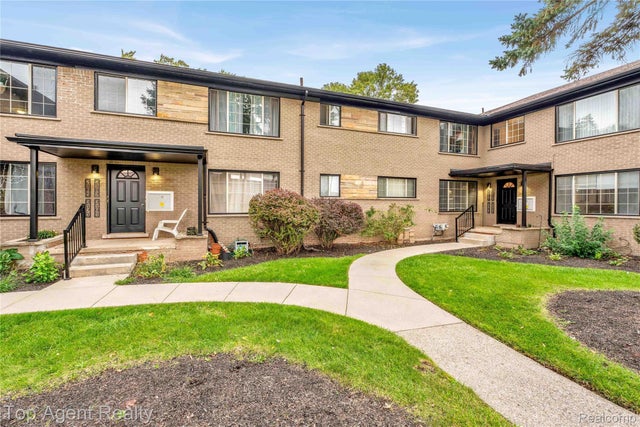
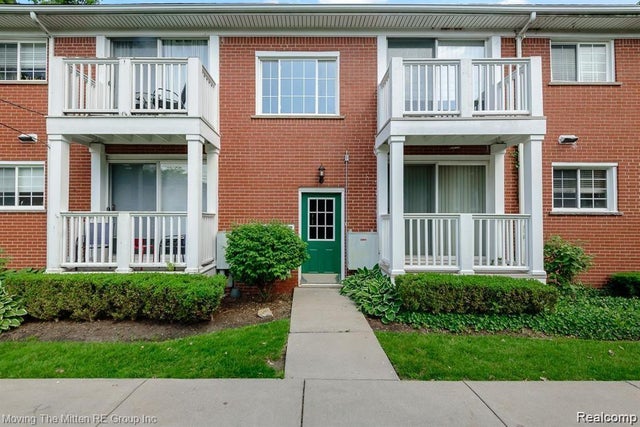
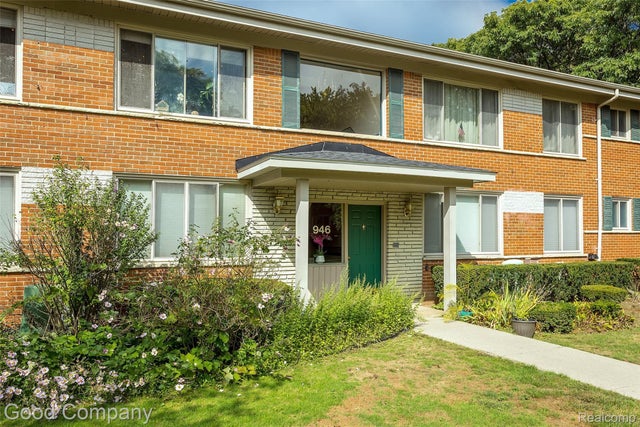
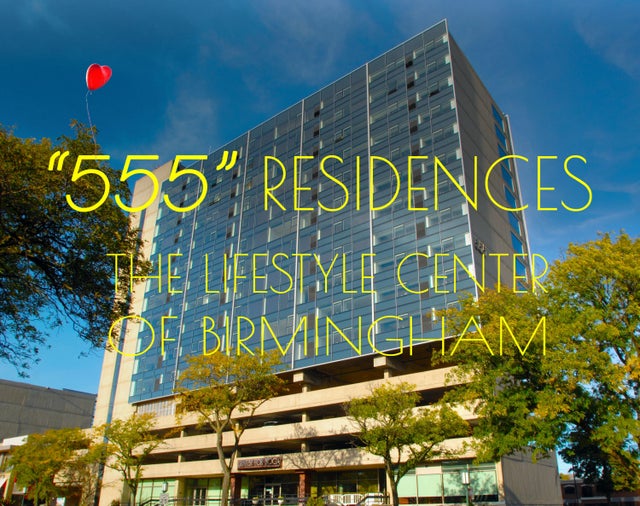
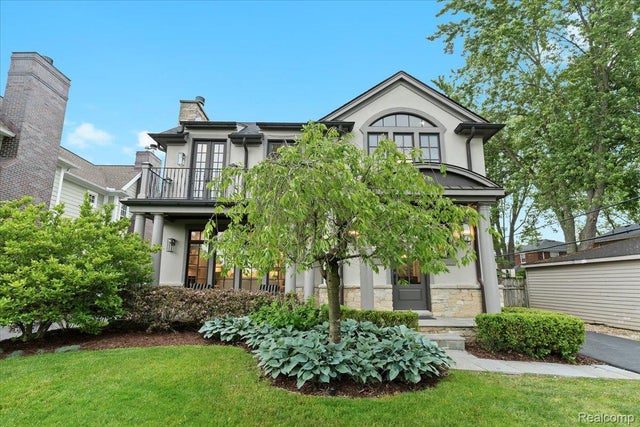
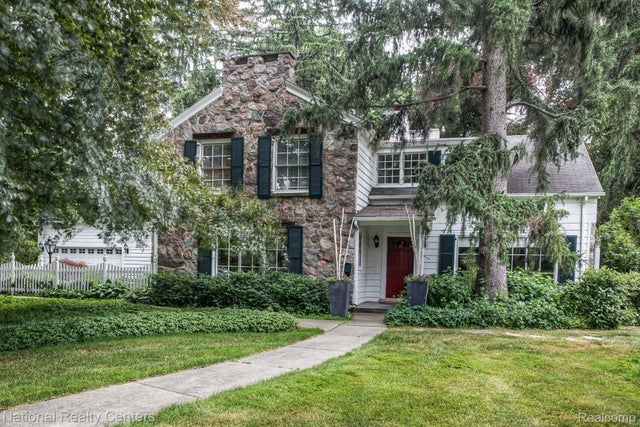
Leave A Comment